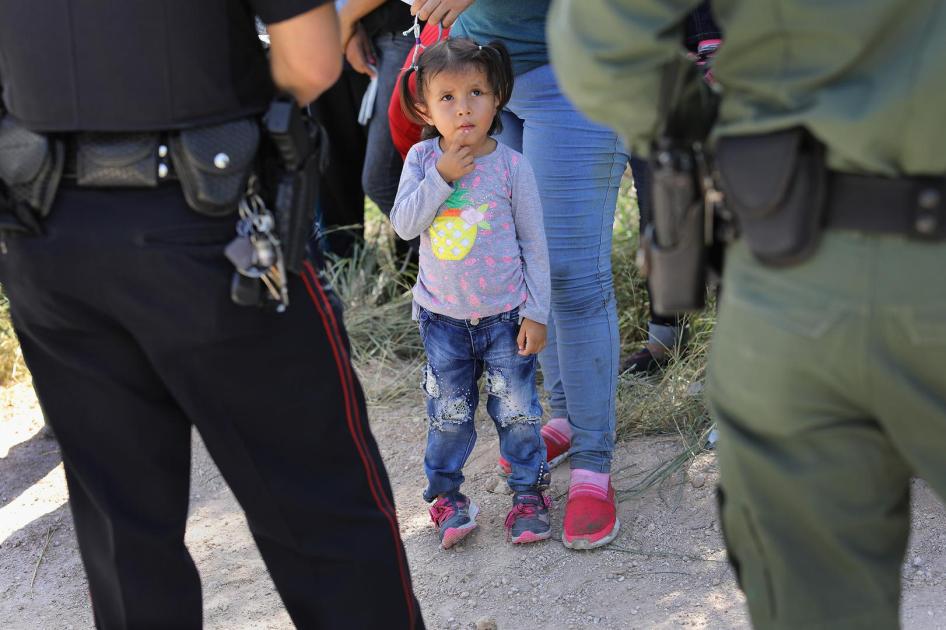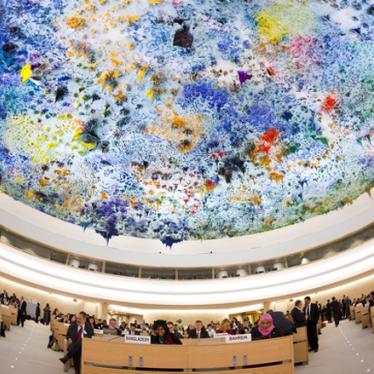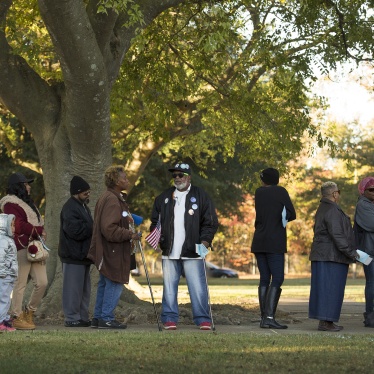(Washington, DC) – The United States moved backward on human rights at home and abroad in the second year of President Donald Trump’s administration, Human Rights Watch said today in its World Report 2019. With Trump’s Republican Party controlling the legislative branch, his administration and Congress were able to pass laws, issue executive orders, revise regulations, and carry out policies that undermined fundamental rights.
“For the second year running, the Trump administration assaulted human rights in the US and abroad with an array of policies that harmed refugees, immigrants, women, and many others,” said Nicole Austin-Hillery, US director at Human Rights Watch. “The reality of rights abuses by the US is that they frequently have an impact that goes far beyond US borders.”
In the 674-page World Report 2019, its 29th edition, Human Rights Watch reviewed human rights practices in more than 100 countries. In his introductory essay, Executive Director Kenneth Roth says that the populists spreading hatred and intolerance in many countries are spawning a resistance. New alliances of rights-respecting governments, often prompted and joined by civic groups and the public, are raising the cost of autocratic excess. Their successes illustrate the possibility of defending human rights – indeed, the responsibility to do so – even in darker times.
Trump signaled some minimal support at the end of the year for criminal justice reform, in a country that has one of the highest rates of incarceration in the world. But throughout the year, his administration rolled back initiatives meant to diminish the disproportionate impact of excessive sentencing and biased policing on people of color and the poor.
Trump put in place an array of immigration and border policies that included separating parents from their children after they crossed the US border. That policy tore apart thousands of families, with hundreds of parents deported to their own country without their children.
The fate of almost 800,000 young immigrants who hold work permits and protection from deportation under Deferred Action for Childhood Arrivals (DACA) remained uncertain as court challenges continued around the administration’s 2017 decision to end the program. The US Supreme Court upheld Trump’s executive order banning travel to the US from seven predominately Muslim countries, an order that Human Rights Watch and others concluded was discriminatory.
The Trump administration also deliberately sought to undermine the Affordable Care Act, a key law that helps provide Americans with health insurance. It also adopted policies that serve to restrict access to reproductive health care for women, both in the US and abroad.
The administration’s foreign policy supported abusive governments militarily, financially, and diplomatically without interjecting a significant human rights component. Trump personally promoted the credibility of autocratic leaders through his meetings and rhetoric. Though the Trump administration expressed support for some international policies aimed at sanctioning individuals and governments committing major human rights violations, overall the administration’s approach was narrow and ad-hoc. In general, US foreign policy mostly sought to distance the US from multilateral human rights institutions and initiatives, as well as international judicial bodies.
“The Trump administration has dragged the US backward on rights, but the new Congress, with many new members voted in during the midterm elections, has an opportunity to reverse course,” Austin-Hillery said. “Congress should seize this opportunity and use its oversight powers to advance respect for human rights at home and abroad.”






